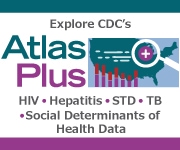Provisional CDC Guidelines for the Use of and Safety Monitoring of Bedaquiline Fumarate (Sirturo) for the Treatment of Multidrug-Resistant Tuberculosis
Media Summary
CDC issues provisional guidance for health care providers on the use of bedaquiline fumarate, a new drug available to treat multidrug-resistant TB (MDR TB). There is a significant need for new drugs to treat TB, especially drug-resistant TB. Bedaquiline, which received accelerated FDA approval in December 2012, belongs to the first new class of TB drugs to be approved to treat this deadly disease in over 40 years. Following FDA approval, CDC began work on guidance to give additional direction to health care providers on the best use of the drug. Informed by a review of the science and extensive consultation with experts experienced in fighting TB across the country, CDC developed new guidelines that give health care providers another critically important tool in the fight against TB. Due to the potential for serious adverse events, bedaquiline is not recommended for all TB patients. Bedaquiline should be used for adults with laboratory-confirmed pulmonary MDR TB when no other treatment options exist, and may be used on a case-by-case basis for others. The guidance also includes recommendations for dosing, delivery, and monitoring for adverse events and clinical outcomes; the drug should always be used in combination with other anti-TB drugs, and close monitoring of patients for adverse reactions is critical. CDC will monitor the use of this drug and update guidance as additional information becomes available.
Media Contact:
National Center for HIV/AIDS, Viral Hepatitis, STD, and TB Prevention
News Media Line – 404-639-8895
NCHHSTPMediaTeam@cdc.gov
###

